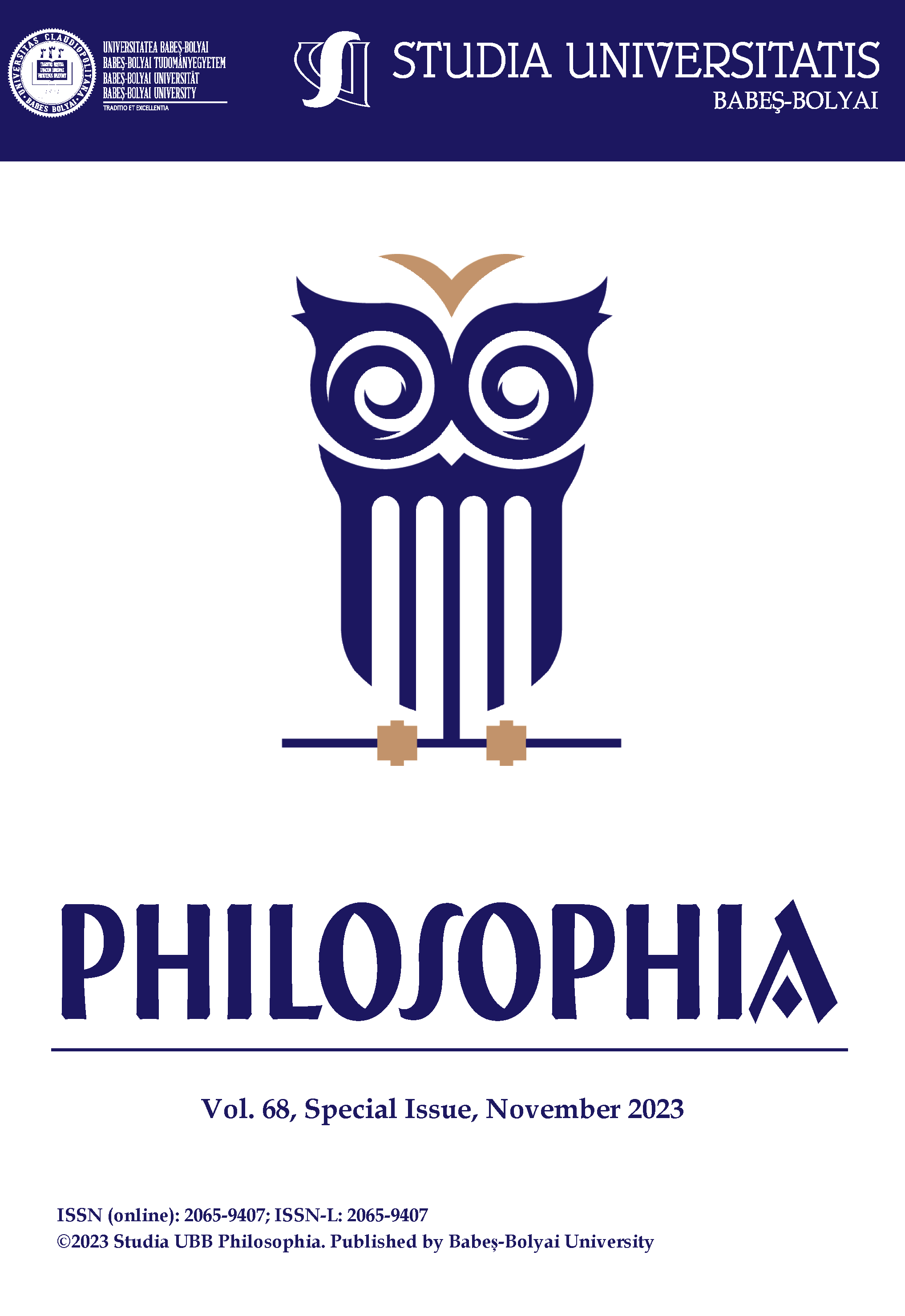Phenomenology After Deconstruction: "Voice and Phenomenon" as a Prolegomenon to Husserl’s Genetic Method
DOI:
https://doi.org/10.24193/subbphil.2023.sp.iss.06Keywords:
genetic phenomenology; Edmund Husserl; Jacques Derrida; Voice and Phenomenon.Abstract
Reading Voice and Phenomenon from a phenomenological perspective, this paper argues that the book is an internal criticism of Husserlian phenomenology that, among other things, can serve as an introduction to Husserl’s genetic method. Derrida’s most powerful arguments are delivered by turning the Cartesian method of Logical Investigations and Ideas I to Husserl’s inquiries into time-consciousness; as such, it is a phenomenological criticism through and through. An analysis of Husserl’s later manuscripts and lectures published posthumously shows that driven by what Derrida calls the radicality of intuitionism, Husserl has developed a genetic phenomenological method that breaks free from the metaphysics of presence and arrived at a conception of meaning and language that is similar to Derrida’s.
References
Brough, John B. “Husserl and the Deconstruction of Time.” The Review of Metaphysics, vol. 46, no. 3, 1993, pp. 503–36.
Derrida, Jacques. “Hospitality, Justice and Responsibility: A Dialogue with Jacques Derrida.” Questioning Ethics: Contemporary Debates in Philosophy, edited by Richard Kearney and Mark Dooley, Routledge, 1999, pp. 65-83.
---. Voice and Phenomenon: Introduction to the Problem of the Sign in Husserl’s Phenomenology. Translated by Leonard Lawlor, Northwestern University Press, 2011.
Husserl, Edmund. Cartesian Meditations. Translated by Dorion Cairns, Martinus Nijhoff, 1960.
---. Experience and Judgment: Investigations in a Genealogy of Logic. Edited by Ludwig Landgrebe, Translated by James S. Churchill and Karl Ameriks, Routledge and K. Paul, 1973.
---. First Philosophy. Translated by Sebastian Luft and Thane M. Naberhaus. Springer, 2019.
---. Ideas Pertaining to a Pure Phenomenology and to a Phenomenological Philosophy: First Book, General Introduction to a Pure Phenomenology. Translated by F. Kersten, Springer Science & Business Media, 1983.
---. On the Phenomenology of the Consciousness of Internal Time. Translated by John Barnett Brough, Kluwer Academic Publishers, 1991.
---. The Crisis of European Sciences and Transcendental Phenomenology. Translated by David Carr, Northwestern University Press, 1970.
Kortooms, Toine. Phenomenology of Time. Springer Science & Business Media, 2002.
Lawlor, Leonard. Derrida and Husserl: The Basic Problem of Phenomenology. Indiana University Press, 2002.
---. “Translator’s Introduction: The Germinal Structure of Derrida’s Thought.” Voice and Phenomenon: Introduction to the Problem of the Sign in Husserl’s Phenomenology, by Jacques Derrida, Northwestern University Press, 2011.
Welton, Donn. The Other Husserl: The Horizons of Transcendental Phenomenology. Indiana U.P., 2002.
---. “The Systematicity of Husserl’s Transcendental Philosophy: From Static to Genetic Method.” The New Husserl: A Critical Reader, edited by Donn Welton, Indiana University Press, 2003.
---. The Origins of Meaning. Springer Netherlands, 1983.
Downloads
Published
How to Cite
Issue
Section
License
Copyright (c) 2023 Studia Universitatis Babeș-Bolyai Philosophia

This work is licensed under a Creative Commons Attribution-NonCommercial-NoDerivatives 4.0 International License.





